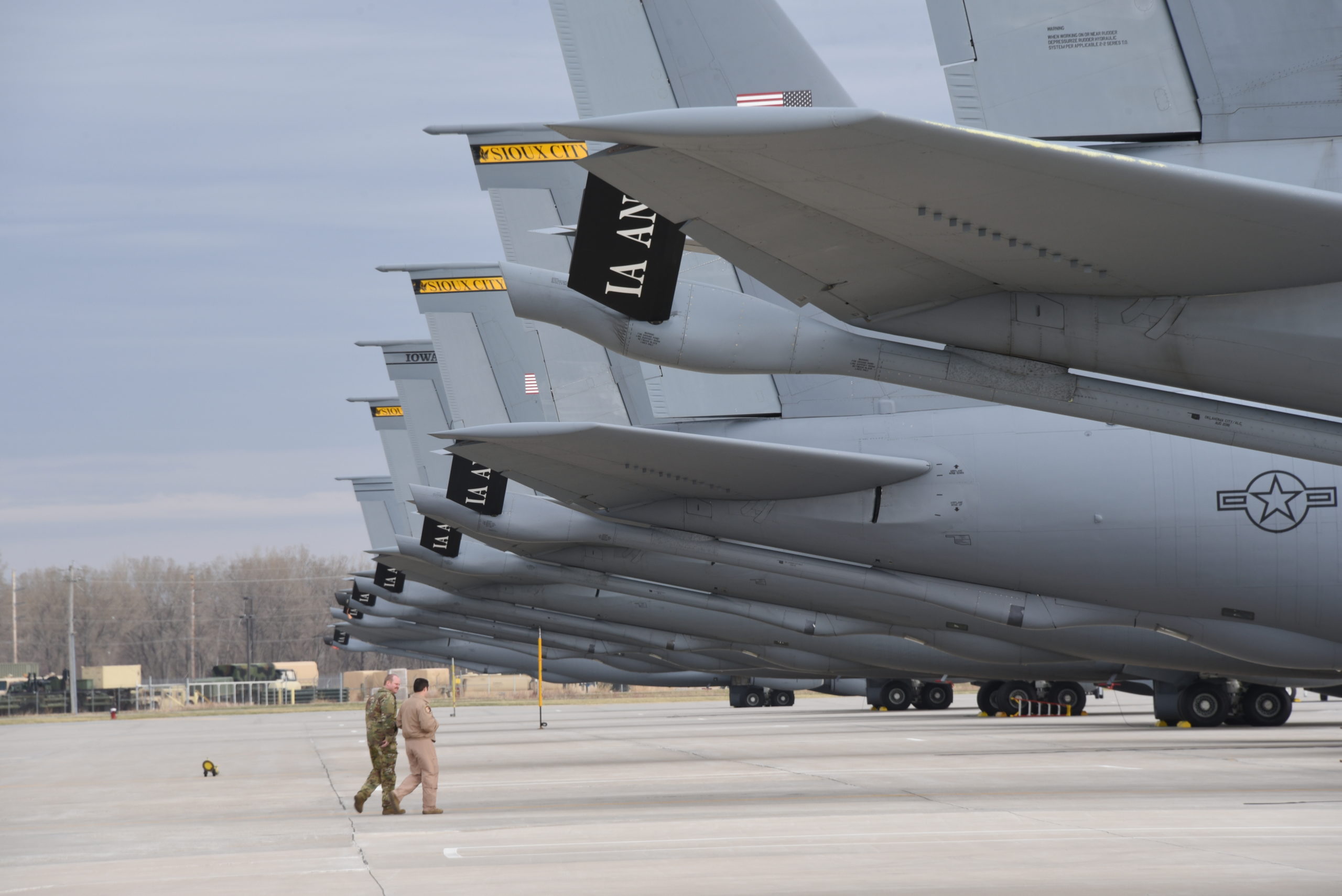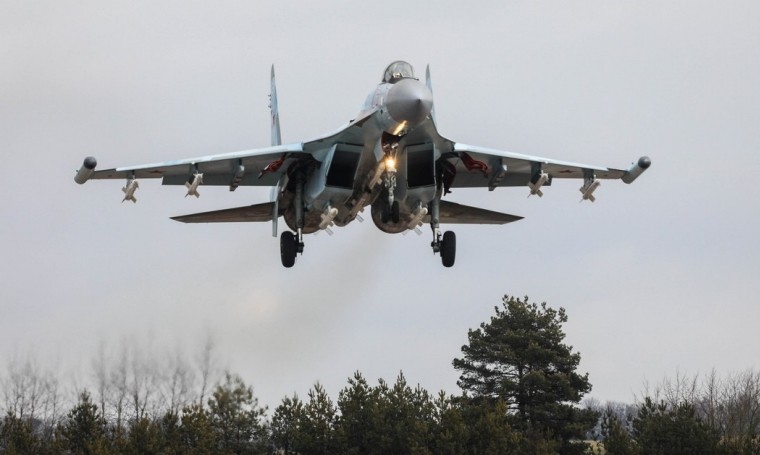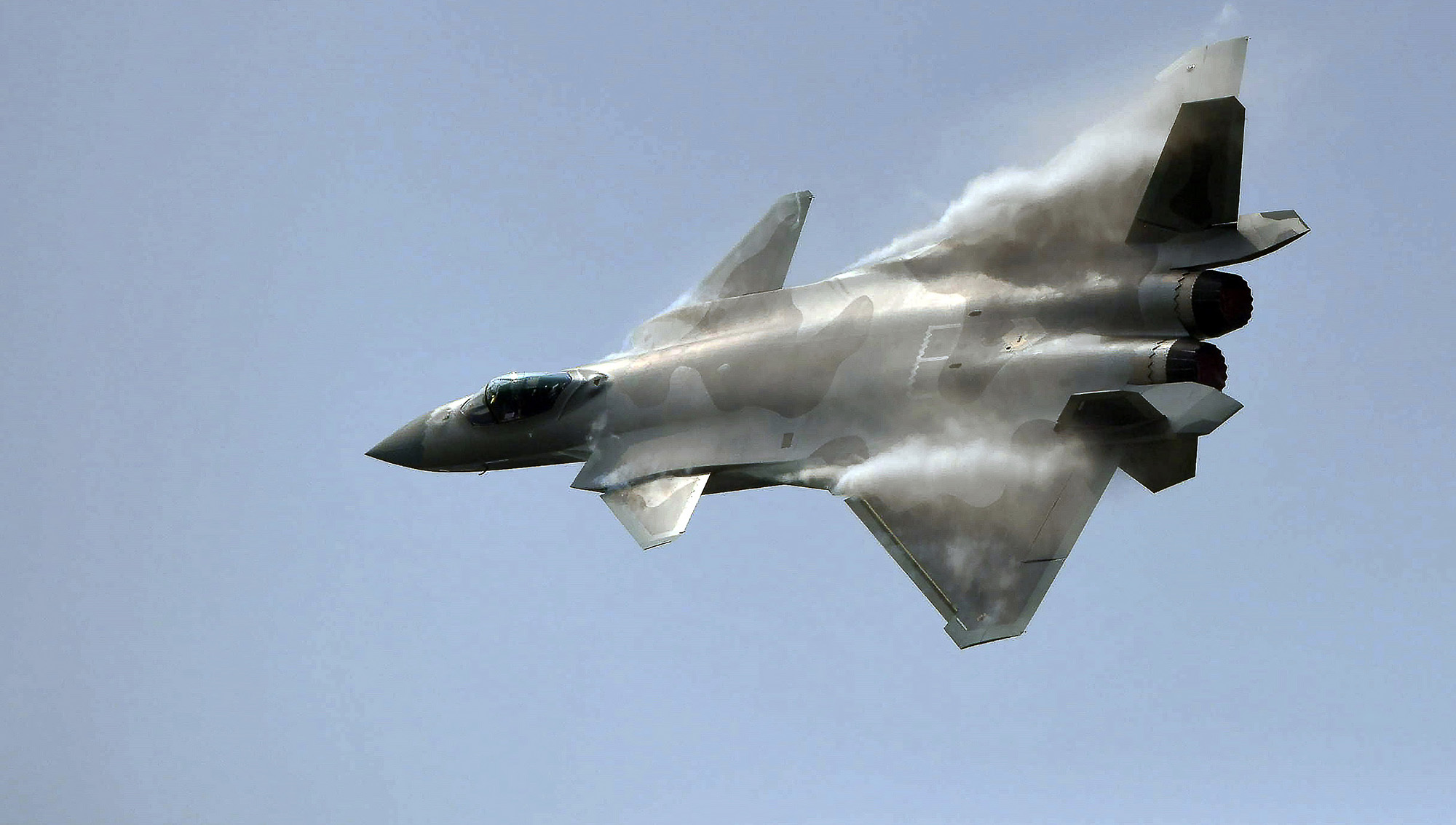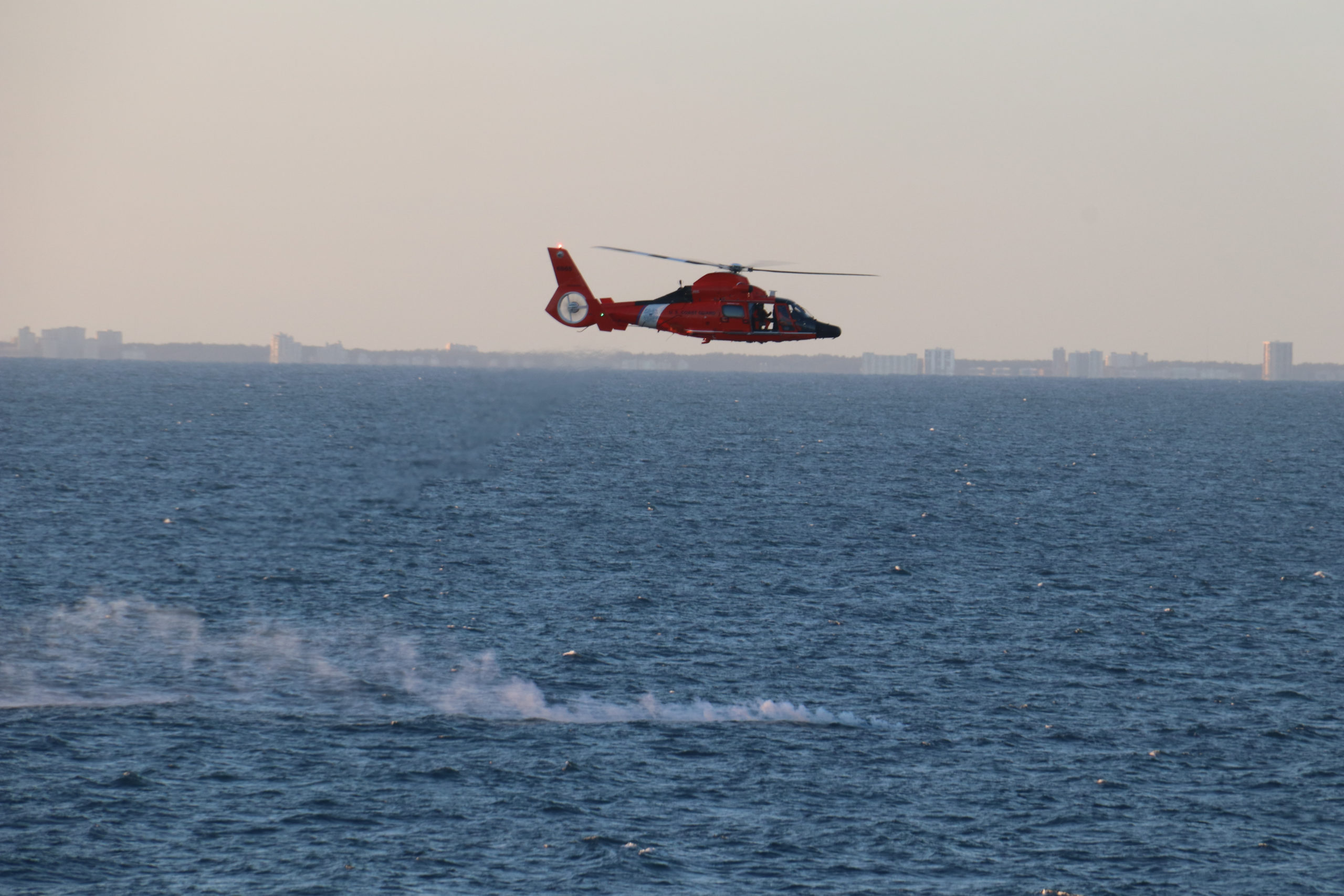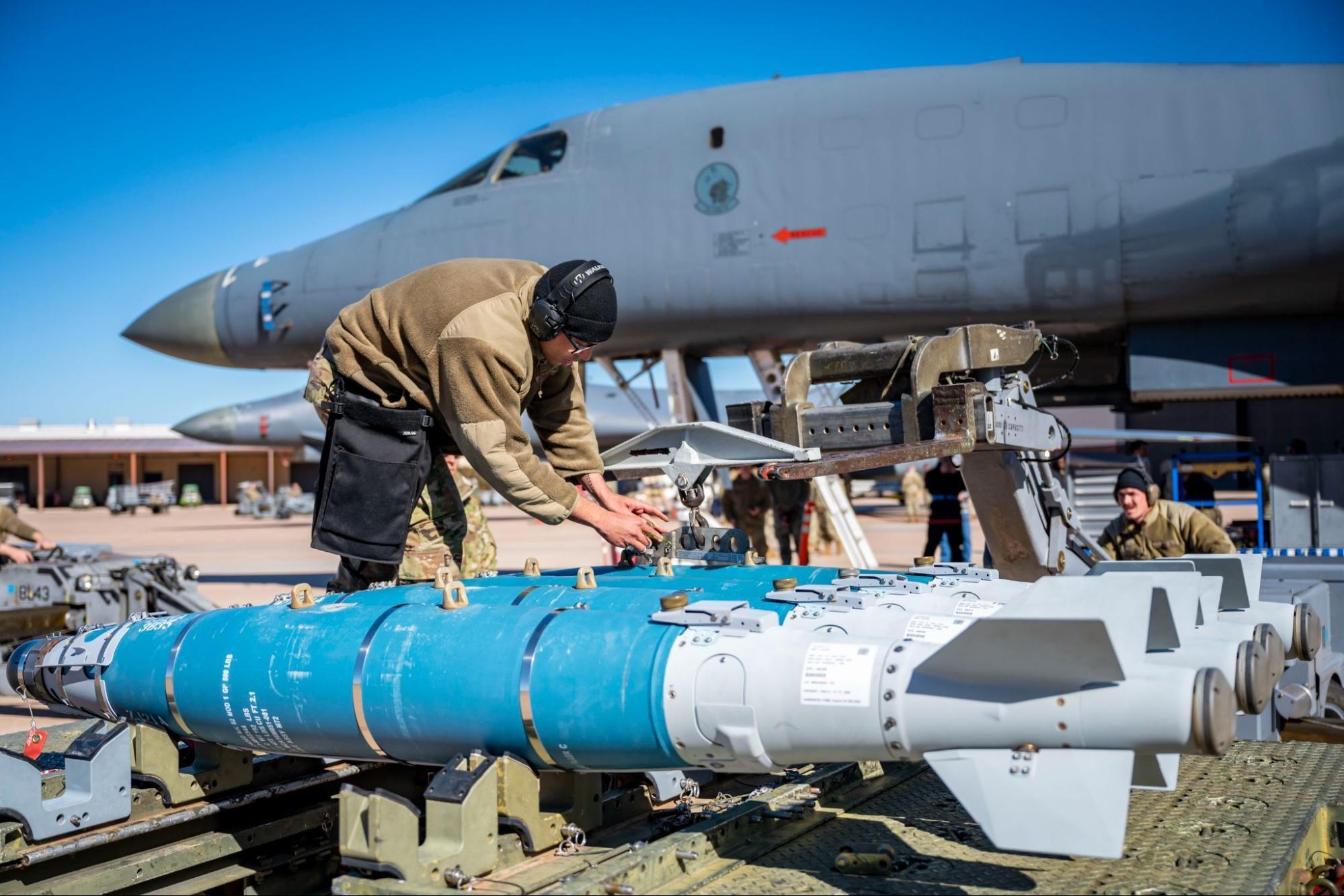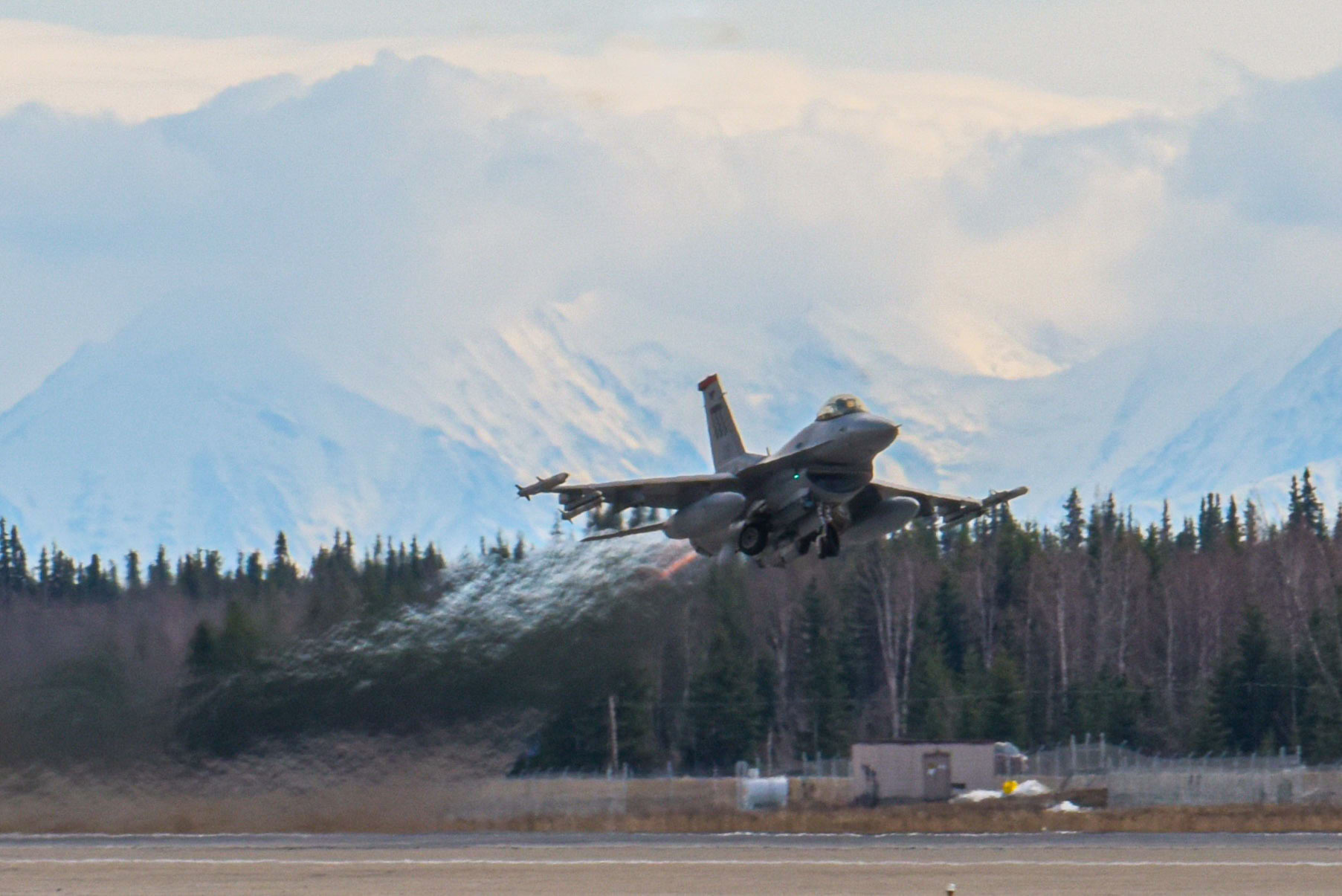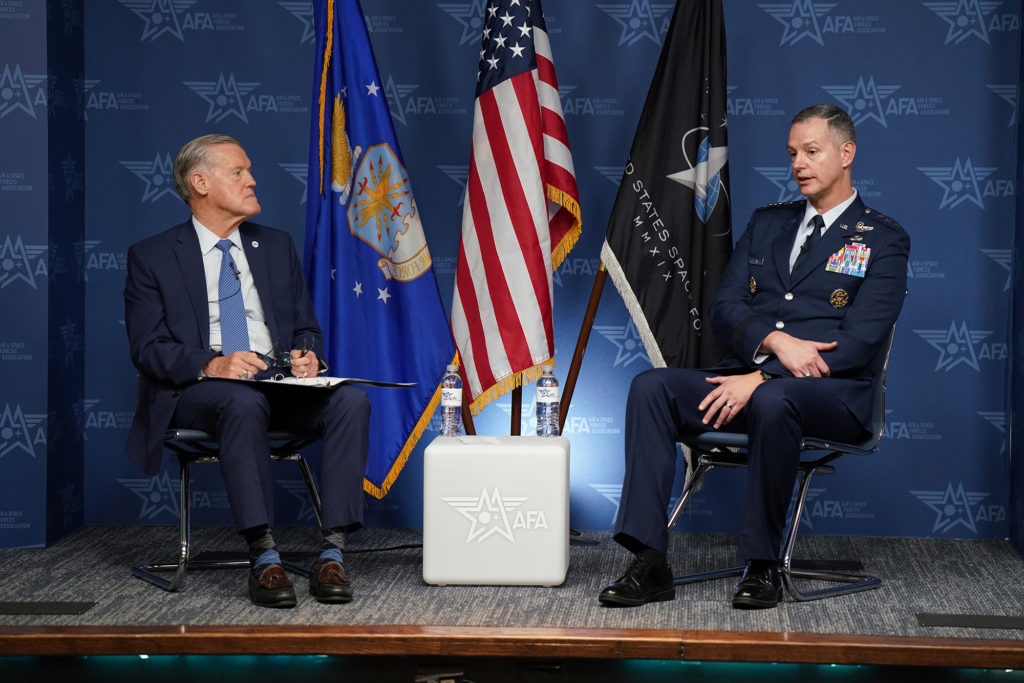The Air Force ordered safety inspections for its entire fleets of KC-135 tankers, RC-135 reconnaissance planes, and WC-135 “nuke sniffers” to ensure no aircraft fly until faulty tail pins are replaced.
The Time Compliance Technical Order (TCTO), issued Feb. 14, affects hundreds of aircraft. But the Air Force Life Cycle Management Center said the inspections should take just 30 minutes and even before the order was issued, at least 90 KC-135s had already cleared the inspections.
The order came to light when a memo detailing the issue was published on the unofficial amn/nco/snco Facebook page. The Life Cycle Management Center confirmed the memo’s authenticity to Air & Space Forces Magazine.
According to the memo, the Air Force bought 280 vertical terminal fitting pins—tail pins—from a supplier between 2020 and 2022, but a subsequent quality deficiency report concluded the parts were faulty. An analysis of two pins found they were the incorrect size, made with the wrong material, and insufficiently plated.
The memo stated that engineering analysis was underway to determine the durability and damage tolerance of the pints, but warned that the aft pins in particular carry much of the weight for the tail fin—and if one of the pins failed, the other would be unlikely to handle the load, a potentially catastrophic risk.
Exactly how many of the 280 pins in question were ever installed is unclear, but the memo states the tail pins on each aircraft are replaced during programmed depot maintenance, and a preliminary analysis of the depot maintenance data from 2020 to 2022 showed at least 200 aircraft could be affected. The Air Force’s inventory included 394 KC-135s, 22 RC-135s, and three WC-135s at the start of 2022.
The decision to stand down the entire fleet for inspections was made “out of an abundance of caution, after consulting with our engineering experts,” Col. Michael Kovalchek, senior materiel leader for the Life Cycle Management Center’s Legacy Tanker Division, said in a statement. “We are working closely with Air Mobility Command and all operational users and anticipate all potentially affected aircraft will be inspected.”
As of Feb. 12, 90 aircraft had been inspected, according to an AFLCMC release, and 24 were found to have nonconforming pins. Those 24, along with any other subsequent aircraft determined to have the faulty pins, will be allowed to fly one more time to a repair location, with most replacement pins only taking a day to install. Most of that work is expected to be done at the Oklahoma City Air Logistics Complex, according to the release.
The 66 other inspected aircraft have been cleared to fly again.
Many of the Air Force’s CV-22 Ospreys are also unable to fly pending replacement of clutch components that exceeded a new flight-hour limit. Unlike the tail pin issue, which has yet to result in mishaps, the Osprey stand-down came in response to multiple “hard clutch engagement” incidents, leading to emergency landings last summer.
